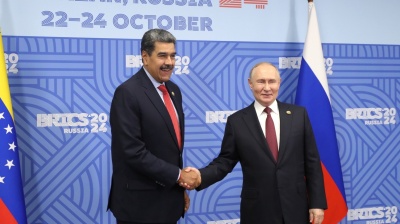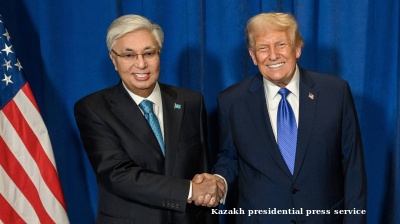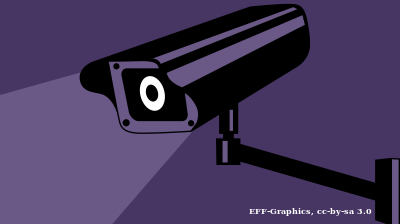Speaker of the Kazakh senate Kasym-Jomart Tokayev suggested during a June 20 appearance on the BBC’s HARDtalk that President Nursultan Nazarbayev will not run in Kazakhstan’s 2020 presidential election.
Nazarbayev took the helm of the country two years’ before it gained its independence in 1991 and turns 78 in two weeks’ time. In the last election he faced, in 2015, the official result gave him 98% of the vote, although many observers take issue with whether or not elections in Central Asia’s economically dominant nation offer real choice or are free and fair. The succession question centred on “Leader of the Nation” Nazarbayev has gained sharper focus since the death in September 2016 of Uzbek autocrat Islam Karimov at the age of 78. He, like Nazarbayev, had ruled his country since 1989. Political risks stemming from the lack of a clear plan for a successor to Nazarbayev have constrained S&P Global Ratings and Fitch Ratings’ debt ratings on Kazakhstan. It does not help that rumours of Nazarbayev’s deteriorating health tend to spring up in the news nearly every year.
“Frankly speaking, I do not believe Nazarbayev will run in the 2020 presidential election. He is a very wise and reasonable person… I think we will have a presidential election with other candidates in 2020,” Tokayev told the BBC programme.
“This is my personal opinion, but of course it is up to President Nazarbayev whether to run in the elections or not,” he added. Tokayev himself did not provide a clear answer when asked if he himself might run for president.
“I want to say that even if President Nazarbayev does not become president of this country [again in the next elections], he will [still maintain] immense influence on internal and foreign policy… it is very important that Kazakhstan will be as stable as it is now,” Tokayev noted.
In 2010, the Kazakh parliament passed a law giving him the official Leader of the Nation title. Kazakhstan has also erected a number of monuments featuring the Kazakh autocrat and named a prestigious school network and a university after him.
Levers of power
If Nazarbayev stepped down, he would likely ensure that all the levers of power still remained in his hands behind the scenes. He has already taken some steps in this direction.
The upper house of parliament on May 31 approved draft amendments allowing Nazarbayev to lead Kazakhstan’s Security Council for life, while changing the status of the body from consultative to constitutional. The draft bill has already been approved by the lower house and it is expected to be signed into law by Nazarbayev. The legislation is seen by some as an attempt to ensure Nazarbayev maintains his grip on power in the event that he moves aside. While the new legislation might be a failsafe for the president, the likelihood of the measure being indicative of preparations for a political transition are generally seen as low.
Nazarbayev rules out elevating one of three daughters to presidency
Nevertheless, the question of Nazarbayev’s successor still remains unanswered. The president has effectively ruled out his elder daughter, Dariga Nazarbayeva, as a potential successor, having said that his children will not succeed him. Before that, Nazarbayeva’s appointment to the senate in 2016 was widely seen as a move to put her in line for the presidency. Under the Kazakh constitution, the senate’s chairman takes over the president’s responsibilities if the president passes away or leaves office early.
Nazarbayev’s daughter Dinara Kulibayeva shares control of the country’s largest bank by assets, Halyk Savings Bank, with her husband Timur Kulibayev, who himself has been seen as the potential next president. The president’s youngest daughter, Aliya Nazarbayeva, heads the Elitstroy construction company.
Tokayev’s BBC appearance came ahead of the country preparing for the IPOs of the seven largest state-owned companies. The planned flotations, along with the planned launch of the Astana International Financial Centre (AIFC) on July 5, are indicative of the country’s shift away from oil export-dependence towards a greater focus on foreign investment and economic diversification. Astana is in the midst of a PR offensive to draw in foreign investment given that it hopes to sell 25% stakes in select state-run companies and draw in liquidity to jumpstart a functioning stock market in the country (the Almaty exchange is not seen to have amounted to much).
The emergence of Mirziyoyev
A big factor in Central Asia right now is the emergence into the limelight of the late Karimov’s reform-minded successor, Uzbek President Shavkat Mirziyoyev. It is possible that Mirziyoyev has started to hog the headlines a bit too much for Astana’s liking as he bids to open up Kazakhstan’s neighbour and draw foreign investment to the 32mn-strong nation, Central Asia’s most populous (at 18mn, Kazakhstan’s population is significantly smaller, although thanks to its vast oil and gas reserves its GDP is at least twice as big). The Kazakhs might feel the need to keep up.
A sudden shift towards a more “democratic-looking” approach to governance could be interpreted as a way for Kazakhstan stay ahead of Uzbekistan’s reforms. Mirziyoyev’s liberalisation efforts, while being a big improvement on Karimov’s inward-looking policies, are so far only set to match the relative “openness” of Kazakhstan. Yet as both a regional partner and competitor with a significantly larger consumer market (a fact that will not change looking ahead especially as some 34% of its population are under 14-years-old), Uzbekistan is potentially placing considerable pressure on Astana to improve.
News

Turkish state grabs another fintech as company seizures continue at pace
Turkey first seizes companies, then tries the suspects. Some companies are sold before the trial process.

Ukraine’s elite HUR forces turn the tide in the battle for Pokrovsk, as Russia’s effort to capture key logistics hub fails
The battle for Pokrovsk became intense early on November 1and it looked like the fall of the key logistics hub to Russia was imminent. But a bold counterattack by Ukraine’s elite HUR forces seems to have turned the tide.

US prepares attack on Venezuela as Maduro begs Putin for aid
The Trump administration has reportedly drawn up a list of potential military targets within Venezuela as part of its intensifying pressure on President Nicolás Maduro, who has turned to Moscow seeking urgent military assistance.

Bulgaria suspends fuel exports to EU after US sanctions Lukoil
Bulgaria has temporarily suspended exports of petroleum products to European Union countries after the United States imposed sanctions on Russian oil giant Lukoil.




